MercoPress. South Atlantic News Agency
Tag: SELIC
-
Tuesday, January 19th 2021 - 08:29 UTC
Brazilian economy forecasted to grow 3,45% this year with 3,75% inflation
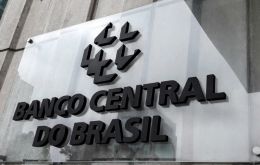
Brazilian financial and market analysts upgraded their economic growth forecast for 2021, from 3.41% to 3.45%, and maintained the projection at 2.5% for 2022, the Central Bank of Brazil announced Monday.
-
Thursday, August 6th 2020 - 09:19 UTC
Brazil's central bank cuts Selic lending rate to a record low of 2%
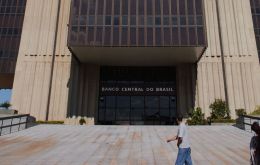
Brazil's central bank cut its key Selic lending rate to a record low on Wednesday and left the door open for more cuts, as the outlook for inflation remains below target amid the impact of the coronavirus pandemic on the economy.
-
Sunday, June 7th 2020 - 09:18 UTC
Brazilian Real rebounding strongly after months of erosion; central bank forecasted to further cut Selic rate

The Brazilian Real and Mexican peso have both rebounded strongly in recent weeks, but their rallies are starting to diverge with the peso running out of steam and the Real gaining momentum.
-
Tuesday, August 6th 2019 - 09:33 UTC
Economists forecast further interest rate cuts by Brazil's central bank
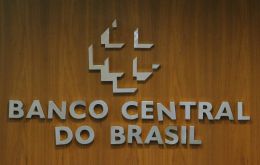
Economists lowered their forecasts for where Brazil’s benchmark Selic interest rate will be at the end of 2019, a weekly central bank survey showed on Monday, after policymakers cut rates more aggressively than most expected to a record low last week.
-
Wednesday, February 13th 2019 - 09:41 UTC
Stable low inflation and expansion forecasted by Brazilian financial market
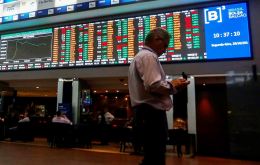
Brazil's financial market has cut its forecast of the country's inflation rate from 3.94 to 3.87 percent for 2019 and kept the rate at 4% for 2020, the Central Bank of Brazil reported. According to the Focus survey conducted by the bank among Brazil's main financial institutions, the forecasts are within the official target of 4.25 percent, with a tolerance margin between 2.75 percent and 5.75 percent.
-
Tuesday, August 8th 2017 - 20:00 UTC
Brazilian economy on course to a modest growth (2%) next year
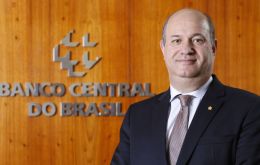
Brazilian Central Bank President Ilan Goldfajn said that Latin America's largest economy remains weak though it is on course to show modest growth next year. In an interview with a São Paulo radio station, he said Brazil may achieve growth of 2% in 2018 if the economy continues expanding at its current pace.
-
Thursday, December 1st 2016 - 14:00 UTC
ºBrazil central bank lowers Selic rate to 13.75%; warns about global uncertainty
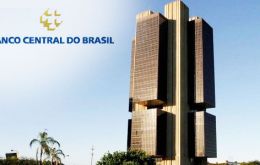
Brazil's central bank cut its key interest rate Wednesday for the second month running, as data showed that the recession hitting Latin America's largest economy continued into the third quarter. The central bank lowered the benchmark Selic rate by a quarter of a percentage point, to 13.75% -- still one of the world's highest.
-
Monday, August 15th 2016 - 15:09 UTC
July inflation in Brazil remains over target: 8.74% in twelve months
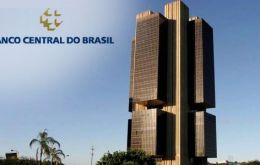
Inflation in Brazil rose more sharply in July than economists expected, official data showed, raising pressure on the central bank to keep interest rates on hold for some time.
-
Thursday, June 9th 2016 - 09:06 UTC
Brazil's central bank leaves interest rate unchanged at 14.25%
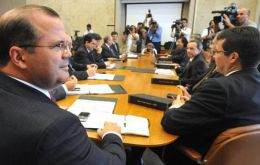
Brazil held interest rates steady for the seventh straight time on Wednesday, resisting pressure to slash borrowing costs amid a recession as inflation remains near double digits. In a unanimous vote, the central bank's monetary policy committee, Copom, decided at its last meeting led by governor Alexandre Tombini to keep its benchmark Selic rate at 14.25%, the highest in nearly a decade.
-
Thursday, January 21st 2016 - 07:13 UTC
In a surprise move, Brazil's central bank leaves interest rate unchanged at 14.25%
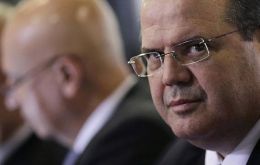
Recession-hit Brazil's central bank in a divided vote left the key interest rate untouched on Wednesday despite rising inflation, opting against an increase that could put a further brake on the world's seventh-biggest economy.
